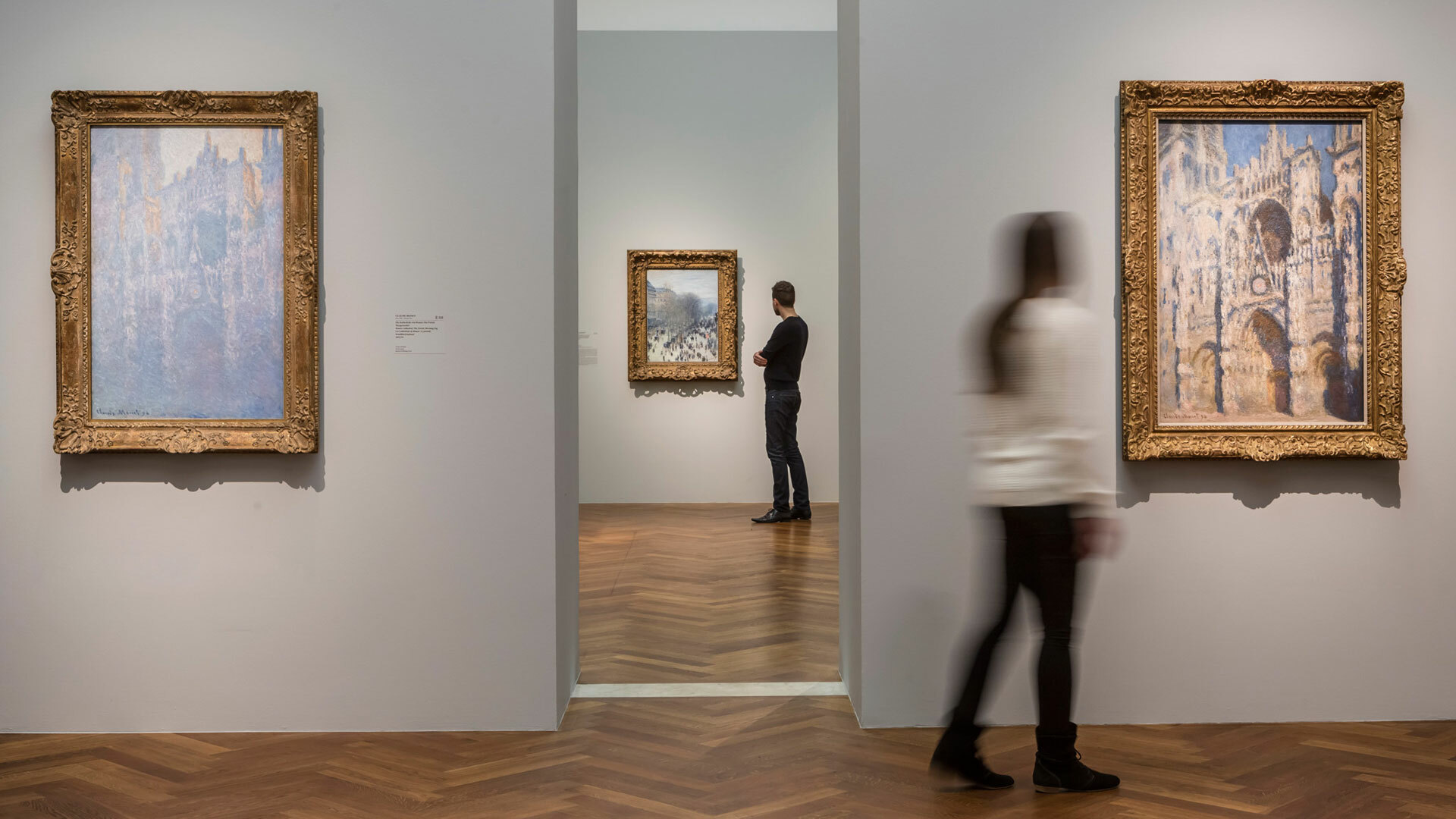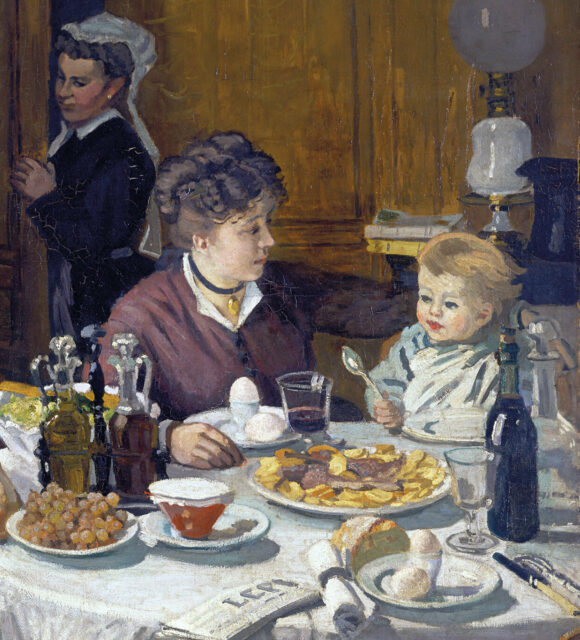About the Exhibition
The exhibition “Monet and the Birth of Impressionism” was devoted to the emergence and early development of Impressionism. The chief focus was on Claude Monet as the movement’s key protagonist, and his fellow artists Auguste Renoir, Édouard Manet, Berthe Morisot, Edgar Degas, Alfred Sisley, Camille Pissarro and others, who revolutionized painting within just a few years. The Monet exhibition focused on the beginnings of the Impressionist movement in the years from the early 1860s to 1880 and sheds light on the emergence of this completely new style and the radical change it brought about in the relationship between pictorial content and form. Impressionism challenged the visual habits of the time in a completely new way. No art current before it had taken the play of colour and light to such an extreme dissolution of form ‒ to bodiless figures, substance-less buildings and vague impressions of landscapes. In their works the Impressionists concerned themselves with themes such as the relationship between man and nature, modern forms of recreation, and the acceleration of life through technical progress.
Some one hundred masterworks from collections in many countries, among others the Musée d’Orsay in Paris, the New York Metropolitan Museum of Art and the National Gallery in London, were on view in the Monet exhibition presented exclusively in Frankfurt.
Curator: Dr. Felix Krämer (Head of Modern Art, Städel Museum)
Project management: Dr. Nerina Santorius (Assistant Curator of Modern Art, Städel Museum)
Film

Digitorial®
Sponsors & Partners
Sponsored by
Commerzbank Foundation
With additional support from
Georg und Franziska Speyer’sche Hochschulstiftung
Media partners
Alnatura, Süddeutsche Zeitung, Verkehrsgesellschaft Frankfurt am Main
Mobility partner
Deutsche Bahn AG
Cultural partner
hr2-kultur
Supported by
Fraport AG and Media Frankfurt

